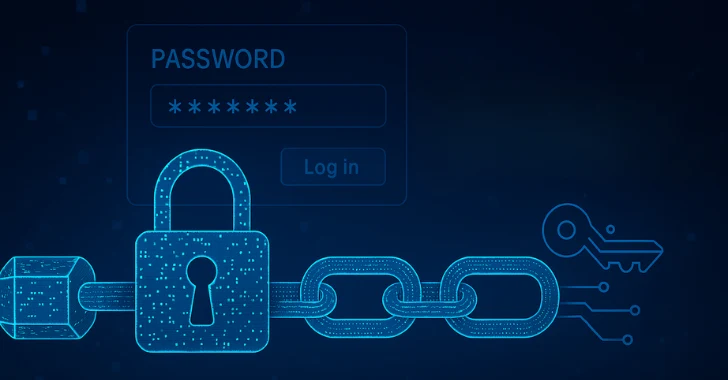
Blockchain is best known for its use in cryptocurrencies like Bitcoin, but it also contains important applications for online authentication. While companies in different sectors are increasingly adopting security tools based on blockchain, could technology one day replace passwords?
How does the blockchain work
Blockchain is a secure way to maintain, encrypt and exchange digital transactions. Its security advantages arise from its decentralized nature: this large distributed book is accessible by the participants through various nodes and is unalterable. All users retain group control, which means that no one can change the big book.
How could it offer security benefits? An advantage is the possibility of creating an “self-souveraine identifier” which changes the way a user identifies online. Essentially, he creates a private ID for a user he controls, rather than relying on a centralized institution: they can connect to a website or special service using their identity on the blockchain.
These identities use cryptographic keys rather than passwords: your private key would be used to authenticate you by verification with a corresponding public key. It could be reinforced by two-factor authentication (2FA) or multi-factory authentication (MFA): for example, when connecting to your bank account.
Key advantages
It is easy to see how it could provide important security benefits. We know all the dangers inherent in passwords, from phishing to a simple user error: reuse the same password easy to guess, for example. With an authentication system based on blockchain, it should be possible to considerably reduce the risk of data violations, as the decentralized nature of technology simply removes centralized databases which are key targets for such attacks.
What advantages does it offer in the real world? There are many examples. For example, R3 Corda is a distributed large book technology designed for financial services, allowing the secure data exchange and the value between the parties. Such technology could be used in areas that know your client (KYC) in finance, allowing banks and other operators to check someone’s identity without endangering their lives.
In health care, it is used to prevent unauthorized access to medical records and to allow secure sharing of patient data. BPM Infosys estimates that the blockchain technology market in health care could exceed $ 215 billion by the end of 2036.
Upcoming challenges
Like any rapid development technology, blockchain poses challenges in the security space and beyond. Let’s look at some.
Cost: Blockchain can be expensive, consuming large amounts of energy and calculation power to validate transactions. The United Nations noted in 2023 that if Bitcoin was a country, it would consume more energy than Pakistan.
Unknown technology: Despite the growing prevalence of Bitcoin and others, most people – and organizations – always have little idea of the blockchain functionality. This could slow down the adoption of technology.
Legal and regulatory problems: Digital identities are a delicate area, with different jurisdictions and countries that have variable standards. This could make it difficult to build global traction.
Storage and scalability requirements: Blockchains require storage, a challenge that could develop as technology is used more widely. It is essential to focus on the scalability of the solution, ensuring that it offers the required speed.
Interoperability challenges: Without international standards, we do not know how interoperability would be carried out. It is essential that identities can be checked on different devices, sectors and even international borders.
The future of passwords
This does not want to minimize the potential of the blockchain as a safety tool. With its decentralized nature and its use of cryptography and private and public keys, it offers enormous advantages. Even challenges regarding energy consumption, costs and regulations could be met as technology develops.
However, although no one can predict the future, it seems very unlikely that passwords will soon disappear. Passwords offer key advantages that offer them a lasting attraction: they are simple and universal; They are flexible because they can easily be reset; And despite the risk of hacks and violations, they remain effective, simply because they are good or wrong.
Protect both the connection and the password
Yes, they can be vulnerable. Ideally, users they will opt for multi -factor authentication, combining passwords with other safety measures – this could include blockchain -based methods. Protect both the connection with an effective MFA such as Specops Secure Access works better in combination with strong password safety.
As long as passwords remain used, organizations must ensure that their active directories are free from low or compromise passwords. The Specops password strategy facilitates the application of a solid password strategy, while scanning your active repertoire for rape or compromise examples. It is currently blocking more than 4 billion compromise passwords – and the list is still increasing.
The reality is that individuals and organizations continue to rely on passwords for online security. This fact – combined with the challenges concerning the adoption of new technologies such as blockchain – average organizations can simply not afford to neglect the safety of passwords, at least in the foreseeable future. Interested in better protection around passwords and end user connections? Contact yourself to find out more.




